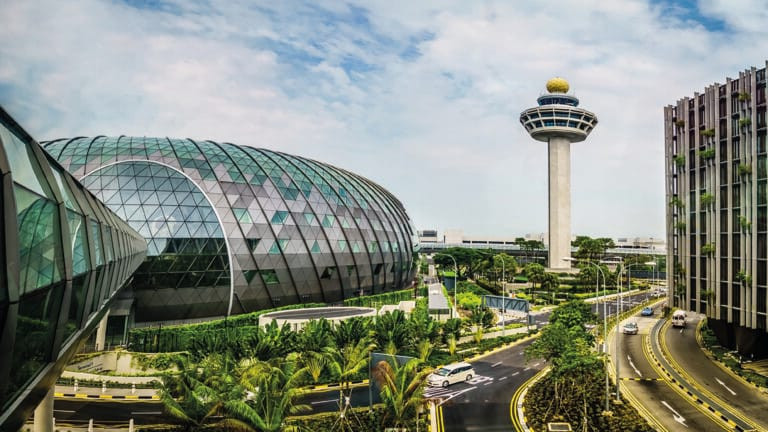- Changi Airport is shifting focus from general cargo to high-value, specialised flows like pharma, perishables, express, and cross-border e-commerce, investing in temperature-controlled facilities and CEIV Pharma-certified partnerships.
- Major integrators including FedEx, DHL, and SF Express are expanding operations at Changi, supported by infrastructure upgrades, parcel-level processing, and digital tools for congestion management.
- The airport’s strategy prioritises resilience, agility, and premium handling over volume, reflecting a wider Asia Pacific trend of competing on specialised capabilities rather than scale alone.
As general cargo flows stabilise across Asia Pacific, high-value, specialised cargo is emerging as the key battleground for regional air freight hubs. At Singapore’s Changi Airport, recent developments suggest a strategic recalibration — one that prioritises pharma, perishables, express and cross-border e-commerce.
It’s a signal that Southeast Asia’s leading gateway is betting not just on scale, but on premium handling capability and vertical-specific resilience. The move raises broader questions for other regional airports: is the future of airfreight about volume, or value?
Pharma focus tightens
“The growth of special cargo is outpacing that of general cargo, particularly within the Asia Pacific region,” says Lim Ching Kiat, Executive Vice President, Air Hub and Cargo Development at Changi Airport Group. For Changi, the pharmaceutical vertical is a case study in ecosystem development — not just facilities, but standards, partnerships, and shared metrics.
The airport houses over 9,000sq m of temperature-controlled space on-airport, capable of handling 375,000 tonnes and more annually via SATS and dnata. Beyond the terminals, its Free Trade Zone offers an additional 30,000sq m of temperature-controlled space for regional distribution — crucial for pharmaceutical re-export activity.
Singapore Airlines Cargo plays a central role with its THRUCOOL service, offering “dedicated cold rooms, quick ramp transfers, thermal protection, priority uplift, and high visibility” across a growing international network. Importantly, Changi boasts the largest community of CEIV Pharma-certified companies in Asia Pacific, with trained cold chain specialists.
“We launched the Pharma@Changi Initiative within our CEIV Pharma-certified community to promote best practices in air pharma transportation and to assess emerging trends and technologies.”
Strategic alignment with Brussels Airport and Pharma Aero – We connect pharma – Pharma.Aero, including co-leadership of the Green Air Pharma Logistics (GAPL) project, suggests Changi views sustainability and compliance as long-term differentiators — not just regulatory hurdles.
The growth in time-sensitive cargo is not limited to healthcare. Changi’s role as a regional express hub is deepening, with all major integrators expanding capacity.
“Following the opening of its regional headquarters in Singapore in February 2024, FedEx has been expanding its network out of Changi,” Lim says. That now includes a direct freighter link to Anchorage. DHL Express, meanwhile, has upgraded its South Asia Hub at Changi, raising scanning capacity by 30 percent and sorting capability by 40 percent. SF Express has also joined the cluster, opening its Singapore Airside Logistics Centre in partnership with SATS — reducing on-airport processing times and strengthening e-commerce handling.
The shift in focus isn’t just about higher-margin cargo; it’s also about responding to the operational realities of cross-border parcel logistics. “Handling e-commerce at scale requires a paradigm shift from freight to parcel-level operations,” Lim notes. Changi’s infrastructure upgrades — such as purpose-built warehousing, customs efficiency, and data visibility tools — are designed to meet those new service levels.
Rethinking what makes a ‘hub’
This move towards specialised cargo capabilities reflects a deeper pivot in how air hubs define competitiveness. Rather than rely solely on frequency or geographic advantage, airports like Changi are investing in segment-specific infrastructure and collaborative standards to deepen their value proposition to forwarders and shippers.
Geography remains a factor. “Strategically positioned at the intersection of vital global trade corridors, Singapore’s advanced manufacturing base naturally positions Changi as a premier conduit,” Lim says. But increasingly, it’s not just location — it’s logistics architecture that’s winning share.
That includes digital tools like Changi’s Truck Dock Slot Booking (TDSB) system, which now serves over 330 community members. Developed to manage congestion and reduce emissions, it also brings visibility to landside activities — a recurring pain point in air cargo operations.
Critically, this isn’t just a story about one airport’s growth strategy. It reflects a wider trend across Asia Pacific: the rebalancing of air cargo from general to specialised flows. Whether it’s perishables in Bangkok, electronics in Penang, or vaccines in Seoul, Southeast Asian gateways are now competing on handling integrity, not just tonnage.
The outlook: niche strength over scale
While 2024 saw Changi’s international air cargo volumes rise 15 percent, growth in 2025 has moderated to 4 percent year-on-year in the first seven months — in line with broader market trends. Yet, instead of scaling back, Changi is sharpening its focus.
From cold chain validation to express parcel automation, its strategic bets are increasingly placed on complexity, not just capacity. It’s a model that prioritises resilience, agility, and premium flows over raw throughput — and one that may shape the next decade of Southeast Asia’s cargo competition.
As Lim puts it, “Changi aims to continuously strengthen thought leadership and contribute to the advancement of cargo logistics across various sectors, offering airlines, forwarders and shippers the best solutions to meet their needs.”




